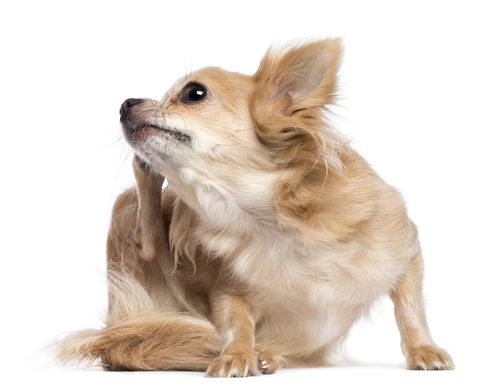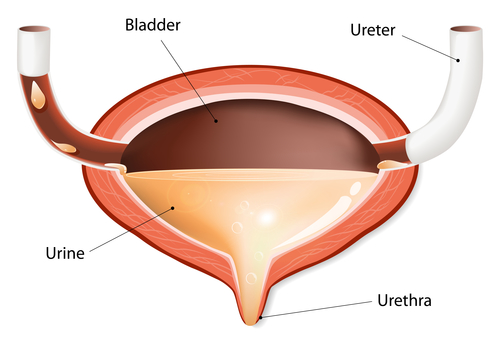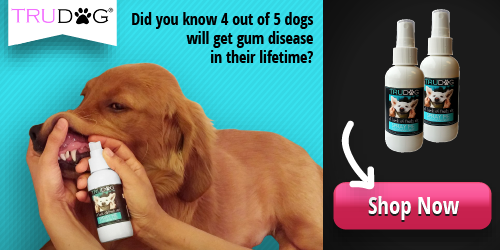Can dogs get salmonella? Years ago we thought that dogs were immune to bacteria and spoiled foods. Everyone fed their dogs table scraps, with no concern for their safety.
But we now know that dogs, just like people, get sick when they eat contaminated foods.
Why Bichon Frises Get Salmonella
Bichon Frise salmonella symptoms appear unexpectedly and quickly. Some breeds, like the Bichon, are just more likely to get salmonella than others.
For example, if your Bichon Frise dog has allergies, he has an immune system that is compromised. And he may have trouble fighting off infections.
Young puppies with their immature digestive systems are especially vulnerable. At the other end of the spectrum, old dogs who have other illnesses, easily get sick from salmonella.

Dogs can get salmonella poisoning in a number of ways. If you know how dogs get salmonella, you can prevent salmonella illness in your dog.
What is Salmonella Poisoning?
Salmonella poisoning is an infection, caused by the salmonella bacteria.
Because many Bichon Frises have food allergies, they have weak digestive systems. Having a weakened digestive system weakens the immune system.
Dogs with weakened immune systems are more susceptible to getting sick from salmonella, a condition known as salmonellosis.
How Do Dogs Get Salmonella?
Bichons get sick from salmonella bacteria in a number of ways:
Dog food salmonella
Often we see dog food recalls because of salmonella in dog food or treats. Stay alert and watch the news for dog food recalls.
Pig ears
While pig ears are marketed as safe dog chews, they can be contaminated with salmonella bacteria. You cannot tell if a treat is contaminated, just by looking at it. Perhaps your dog would enjoy another kind of dog chew instead.
Eating feces
Dogs sometimes eat anything, including the feces of another dog or a wild animal. If the other animal is infected with salmonella, your dog can get salmonella poisoning.
When a dog eats poop, he is most likely not getting enough minerals in his diet. Simply adding a good quality supplement like TruDog’s Complete Me may be all you need to do to stop this disgusting habit.
Saliva from a dog with salmonella
Dogs contaminate other dogs when they lick them. And, if your dog has salmonella, he can spread the bacteria to you with his sloppy kisses.
Bird feces or dead birds
If you have bird feeders, place them so that your Bichon does not have access to them. Birds are sometimes salmonella carriers and can spread salmonella to dogs.
Raw chicken or eggs
Eggs contaminated with salmonella are the most common cause of salmonella poisoning in dogs. However, raw chicken can also contain salmonella bacteria. Cook eggs and chicken before feeding them to your dog. This reduces the risk of salmonella poisoning.
Salmonella Symptoms in Dogs

Signs of salmonella poisoning can develop in 6 to 72 hours after exposure to the salmonella bacteria.
Here are some signs of salmonella poisoning in dogs that you should be on the lookout for:
- High fever – Usually your Bichon will develop a fever as his first symptom.
- Vomiting
- Diarrhea – can have blood or mucus in it. DiaGel helps control bacterial diarrhea caused by salmonella bacteria.
- Dehydration – not getting or drinking enough water to stay hydrated.
- Not eating – refusing food
- Lost pregnancy – miscarriage or spontaneous abortion
While you may not be able to prevent your dog from getting salmonella entirely, you can take precautions to prevent it. If you limit the ways that your dog is exposed, he will have very little chance of getting salmonella.
Think your dog has been exposed? Keep an eye on her and take her to the vet if she shows any symptoms. The veterinarian can do tests that will determine if she has salmonella.
Salmonella can be serious, and occasionally fatal. So don’t delay getting to the vet, if you think your dog has it!







Leave a Reply